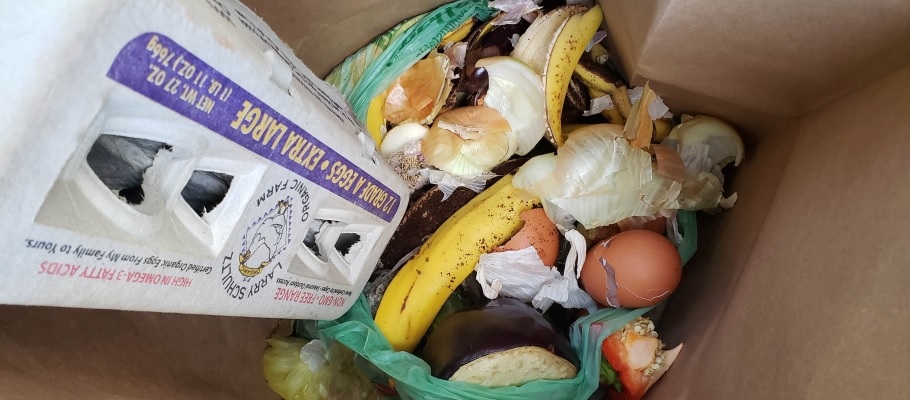Many people want to help the environment but aren’t sure where to begin. If you’re wondering how to have an impact in your daily life, why not look close to home – with the food you buy and, more to the point, the food you waste?
Reducing the amount of food we waste is an easy act that’s good for the planet and climate, and is a way to directly save you money. Let’s take a quick look at the benefits of reducing food waste, both for your family and future generations.

Reduce trash
Although it may not seem like a big deal to toss spoiled food here and there, it adds up over time and multiplies when everybody is doing it. Each year in Hennepin County, we waste an amount of food that could fill Target Field one-and-a-half times! According to a 2016 waste study, food is the most common material found in our trash, so if we waste less food, we can reduce trash and shrink the amount that is now going to an incinerator or a landfill. Plus, on a household level it means we have fewer (and better-smelling) trash bags.
The climate connection
Wasting less food has a direct climate benefit. Growing and transporting food creates greenhouse gases – from the distant farm fields to the landfills where rotting food ends up and all the waypoints in between.
Fossil fuels are used to run processing equipment and the vehicles that transport your food from its source, to distribution centers, to the grocery store, and on to your house – emitting carbon dioxide all along the way. When food goes to waste and rots in landfills, it gives off methane, which is an even stronger greenhouse gas. The U.S. Environmental Protection Agency published a report in 2021 that estimated that if reducing food waste by half would reduce as much CO2 as shutting down 23 coal-fired power plants.
If we only grow the food we will use and not extra that is wasted, we can reduce the unnecessary burden on the climate.

Your financial benefit
Adjusting your habits so that you only buy the amount of food you use results in financial savings. The average household in America spends between $1,500 and $2,000 on food that just ends up in the trash. When budgets are tight, or even if they’re not, you likely have a better way to spend that money; the less food you have in your trash or compost bin, the more money you have in your bank account.
Wasting less food leads to less garbage, is good for the climate, and can save you money. Adjusting your habits to make better use of the food you buy is a practical way to benefit both your household and the environment. If you spend a bit of time learning about why food goes to waste and figure out what to change to reduce your trash, you can have a big impact. An easy way to learn more is to participate in the Hennepin County Stop Food Waste Challenge this August.